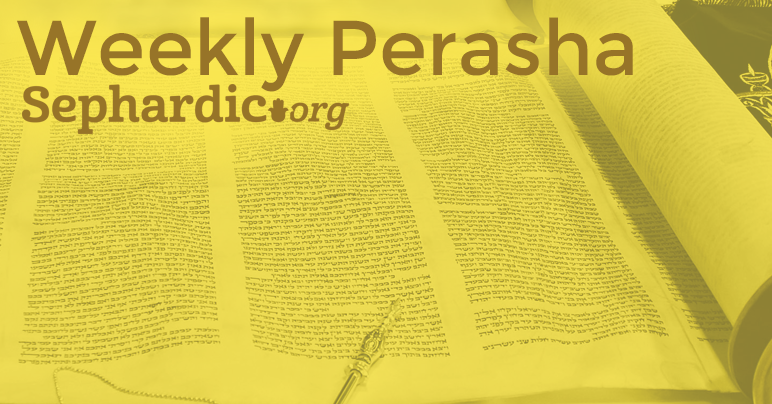
VAYERA - TERAH IYOV AND THE REDEMPTION FROM EGYPT
All students of our mystical tradition should be enthralled with the verse that appears in Beresheet. "This is the book of the generations of Adam." 1 Ben Azzai a student-colleague of R. Akiva considered this statement - as the greatest Torah principle. 2 It is quite obvious that the verse includes the teaching that the whole of the Torah is one long story. Every narrative is intertwined with the next. The guiding principle that connects all of Israel in particular and mankind in general in both time and space is that of Gilgul. The idea that souls are reincarnated throughout the generations to correct faults from prior lifetimes. Let us investigate the Sages words on the soul of Terah the father of Abraham in order to attempt to intertwine the early Parashiot in Sefer Beresheet with the leaving of Israel from Misrayim found in Beshalah. Our approach is based on the fact that there exists a relationship between the correction of the soul of Terah and the redemption of Israel from Egypt. Abraham and his son Yishak after him understood this relationship. We will see their active participation in the advancement of the soul of Terah. Their assistance took place after the death of Terah at the gates of Gehinam and later on in his reincarnated form as Iyov from the land of Uos.
THE LIFE OF TERAH
The Torah at the conclusion of Parashat Noah tells us of Terah's lineage fathering Avram, Nahor and Haran. It also notes his migration from Ur toward Canaan while stopping at Haran where he died at the age of 205. The Midrash teaches that Terah was a distributer of idols. Once during his absence he appointed Abraham to sell them in his place. It was upon his return that he discovered Abraham had destroyed the idols -so he handed him over to Nimrod. 3 Abraham with the encouragement of Shem and Noah persuaded Terah to leave the service of Nimrod and accompany him to the land of Canaan. Evidently he consented to the wishes of his son and his elders - repenting and leaving Nimrod. 4 Though he spent the majority of his life in idol worship and immorality he was spared Gehinam and merited according to R. HaAri to be reincarnated as his Grandson Ous the firstborn of Nahor whose Birth is recorded at the end of our parasha. 5 This Uos - he reveals is synonymous with the famous Iyov from the land of Uos. The Talmud Bavli and Yerushalmi allocate much discussion to the personage of Iyov - especially when he lived and whether or not he was from the stock of Israel. Apparently we must consider that if all the responses exhibit a truth we must conclude that all the considerations are related to the various transmigrations of his soul.
ABRAHAM'S CONCERN FOR THE SOUL OF HIS FATHER
Abraham was cognizant of his fathers inability to reach Tikun during his sojourn in this world. He realized that if the parental root of Israel is damaged - how would their descendants ever merit to leave Misrayim. 6 With this in mind let us reread and elucidate parts of the Berit Ben Habetarim. Know for sure that your descendants will be foreigners in a land that is not theirs for 400 years. They will be enslaved and oppressed. But I will finally bring judgement against the nation who enslaves them, and they will leave with great wealth. It is here that Hashem reinsures Abraham that the soul of his father Terah can reach Tikun and will actually assist in the redemption of Israel. You Abraham will join your father in Gan Eden in Peace. This was in response to Abram's inquiry as to how the redemption can occur if the soul root of Israel in the person of Terah is depraved? Don't worry Abraham - you will save him from Gehinam and he will through the laws of Gilgul even attain an elevated position with you in Gan Eden. This will not occur prior to the fourth generation when the soul of Terah will be rectified coinciding with the redemption of Israel. 7 Hence The Talmud teaches that Iyov lived in the Land of Canaan and died as the spies were in the land. This would signify the end of the fourth generation and time of redemption. 8 Another Talmudic opinion asserts that Iyov’s life was parallel to the period of the Egyptian exile. 9 The Torah supplies us here with the code - a condition for the redemption of Israel is the Tikun of the soul of Terah. After the narrative of this Berit - we are told that Abraham was then circumcised. Apparently to facilitate his role in fathering his seed Yishak in holiness and to merit the role of gatekeeper at Gehinam to redeem his father Terah. The Talmud teaches that Abraham stands at the gates of Gehinom to redeem the souls who might fall there. 10 Abraham perfected himself and was able redeem the soul of his father from Gehinam in order to facilitate its ability to reincarnate in a human soul to reach perfection. R. HaAri teaches 11 that the initial letters of the first four words of our parasha form איוב - It begins וירא יהו״ה אליו באלוני - The verse continues - notes R. HaAri - that Abraham was "sitting at the opening of the tent in the heat of the day". 12 The heat of course being a reference to the statement of our Sages that Gehinam is synonymous with idea of God removing the sun from its covering. 13 Avraham of course was sitting at its opening or entrance to save the soul of Iyov from “fires” of Gehinam. 14
THE BOOK OF IYOV
I recall Hakham Ovadya speaking in Deal a few decades ago stressing the fact that it is incumbent upon us to understand Gilgul. He spoke of the connection between the soul of Iyov and that of Terah the father of Abraham. This forms the basis for the mystics approach to the suffering experienced by Iyov. Namely that it served as a rectification for the soul of Terah. According to the Talmud it was none other than Moshe Rabenu who penned this Sefer. 15 Why would Moshe find this necessary? Evidently the story of Iyov is integral in the redemption of Israel. R. HaAri draws our attention to the fourth visitor of Iyov- His name is אליהו בן ברכאל ממשפחת רם - Elihu the son of the one who was blessed by God from אב the father of רם or Abram. This according to one view in the Talmud Yerushami is none other than Yishak. 16 According to R. HaAri, his sudden appearance is to refute Iyov's expressions of denying Divine providence. He is there to make sure that Iyov who is carrying the soul of Terah completes his Tikun. 17 That can only come when he justifies all the suffering that God has devolved upon him.
PROVOKING SATAN AGAINST IYOV
The first chapter of Sefer Iyov describes how he was righteous and upright. God provokes the Satan to take notice of how diligent Iyov is in his service God. The Satan argues that Iyov's commitment is strictly due to the "good life" he has been granted. Satan is given permission to wreak havoc on the life of Iyov. He sets out to prove that he will not stand up to the test but will blaspheme God as he did in his former life of Terah. He proceeds to take away his livestock and then family as is detailed in the initial chapter. 18 The Yerushalmi explains why and when God delivered Iyov into the hands of the Satan. The Jews were crossing the Yam Souf with the Egyptians in pursuit. The Satan interjected "These are idol worshippers and those are idol worshippers!" 19 Why are you giving preference to Israel? God then diverted his attention to Iyov thereby facilitating the saving of the Jews. Why? How can God use Iyov to ransom Israel? It is as we noted above - the Tikun of Iyov or Terah was essential to the redemption of Israel. The soul of Terah must declare with uncompromising faith - God gives and God takes away - this was an essential step - as was told to Abraham in the redemption of his children. 20 R. HaAri teaches how the children of Israel recognized that it was the merit of Iyov that allowed them to escape the sea unscathed. 21 When on the other side they sang - את יהו״ה ויאמינו ביהו״ה - the initial letters forming איוב - One should not consider for a moment that Iyov did not recognize who he spiritually was. His name is איוב - the father אביו of whom he wrote "I am comforted over (the one who considers himself) dust and ashes. As Abraham said - I am dust and ashes. 22
Shabbat Shalom
Victor Bibi








